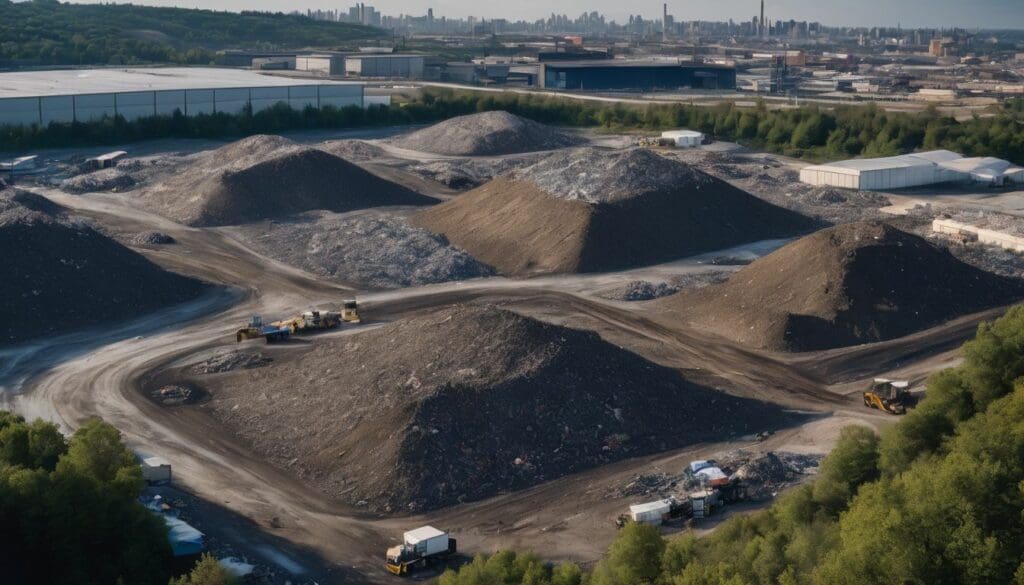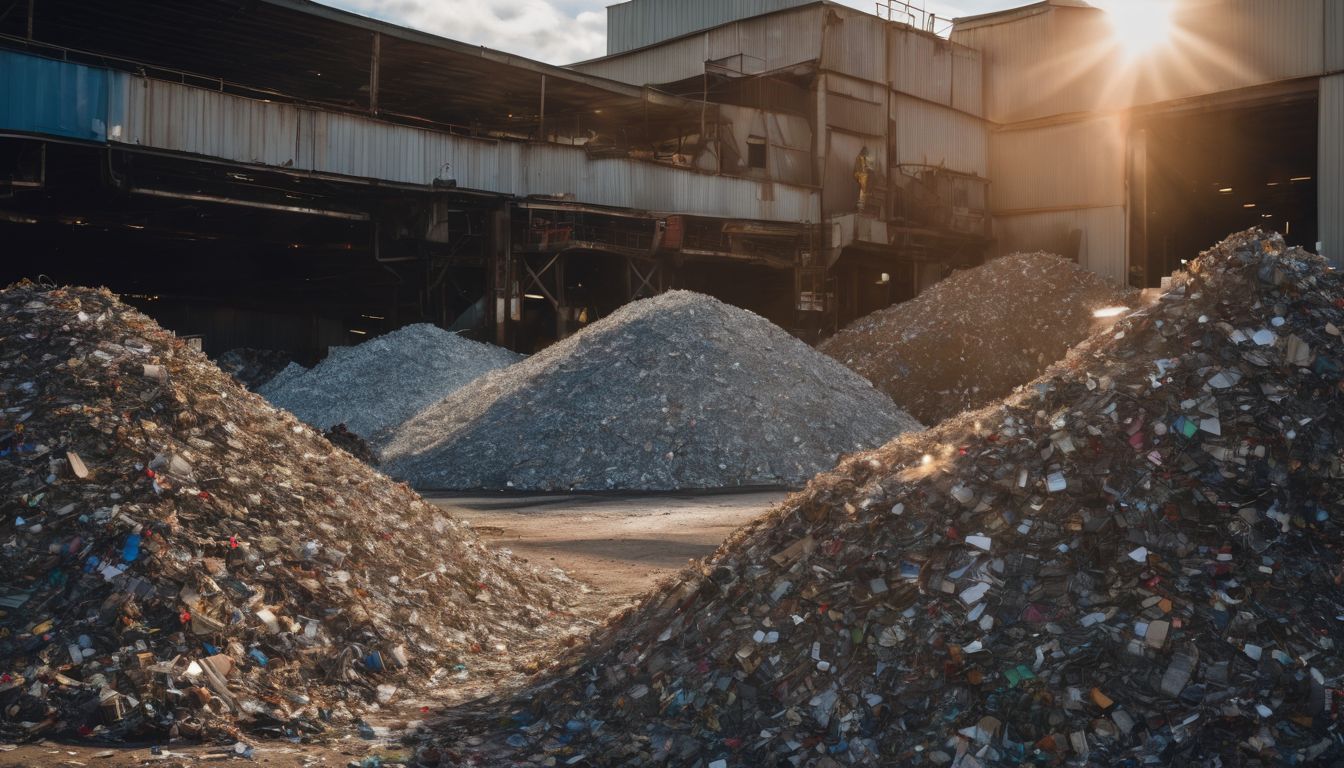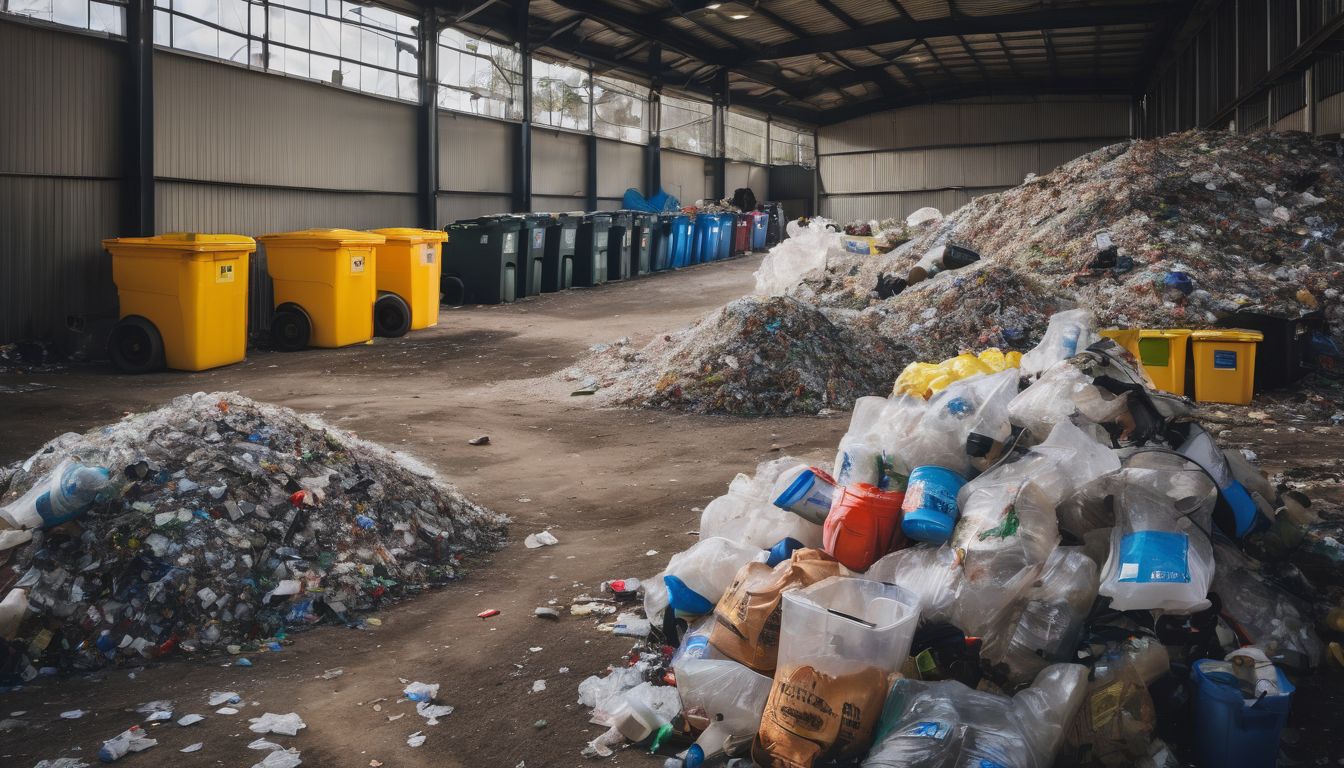Recycling is on everyone’s mind as we face the mounting pressures of waste worldwide. Did you know that each year, we produce over 50 million tonnes of electronic waste alone? Our blog takes a deep dive into global recycling practices, unearthing how different regions tackle this challenge and offering insights into making a difference right at home.
Read on for a world of change!
Key Takeaways
- Recycling transforms waste into reusable items, helping to conserve raw materials and support the circular economy.
- E – waste is rising globally; proper recycling and disposal are crucial to prevent harmful environmental and health impacts.
- Innovations in recycling technology improve efficiency and reduce pollution, with advancements like advanced sorting systems and waste-to-energy technologies.
- Sustainable recycling practices within various sectors, from manufacturing to healthcare, showcase successful closed-loop models and waste minimisation efforts.
- Promoting sustainable cities involves integrating eco – friendly practices in urban living, through improved waste management systems and green community initiatives.
The Definition of Recycling and its Importance
Recycling is the process of converting waste materials into reusable objects, reducing the consumption of fresh raw materials. It plays a vital role in promoting sustainability and waste management, contributing to the circular economy and conserving resources.
Circular Economy
A circular economy aims to redefine growth by focusing on positive society-wide benefits. It detaches economic activity from the consumption of finite resources and designs waste out of the system.
Goods are manufactured so that they can be reused, repaired, or recycled back into nature or the market. This approach contrasts with a traditional ‘take-make-dispose’ model which results in large amounts of valuable materials being wasted.
Businesses adopting circular economy principles work towards sustainability and resource conservation. They transform their operations to create a closed loop for products, where materials keep cycling within the economy rather than ending up as landfill.
This shift requires innovative business models and technological development to maintain and extend what is already made, recover materials at the end of service life, and regenerate natural systems—ensuring lasting environmental commitment beyond mere recycling programs.
Waste Management
Effective waste management involves promoting the reuse, recycling, and recovery of materials to lessen environmental impact. It also requires developing efficient strategies for the safe disposal of non-recyclable waste.
By ensuring responsible waste management practices such as source reduction, composting, and proper disposal of hazardous materials, we can significantly reduce our contribution to landfills and protect the environment for future generations.
Sustainable waste management maximises resource efficiency by focusing on waste prevention and minimisation. This approach emphasises the importance of creating less waste in the first place through better product design, material selection, and manufacturing processes.
Sustainability
Sustainability in recycling practices is crucial for the long-term health of our planet. Implementing eco-friendly methods, such as waste reduction and conservation efforts, can help minimise environmental impacts.
Global initiatives focusing on sustainable living and recycling infrastructure play a key role in promoting environmentally friendly practices worldwide.
Technology development and legislation are driving forces behind creating effective global initiatives for sustainability. By supporting these green initiatives, individuals can actively contribute to the protection of our environment and ensure a better future for generations to come.
Global Generation and Regulation of E-waste
The global generation of e-waste continues to rise due to rapid technological advancements and increased consumer demand for electronic devices. Regulations on e-waste management vary widely across different countries, leading to disparities in the handling and disposal of electronic waste.
This lack of uniformity has resulted in significant environmental and health impacts, as improper disposal methods release hazardous materials into the air, soil, and water systems.
To address this issue, international cooperation is crucial for establishing standardised regulations that govern the generation, collection, recycling, and disposal of e-waste. Additionally, promoting awareness about responsible e-waste management practices among manufacturers and consumers is essential for mitigating the adverse effects of electronic waste on our environment.
Governments need to collaborate with technology developers and manufacturers to implement sustainable recycling initiatives that prioritise eco-friendly practices while utilising technology development to promote effective solutions for managing e-waste globally.
E-waste Recycling Practices
Explore the treatment and disposal processes, environmental and health impacts, as well as the solutions and advances in recycling e-waste. Learn about the innovative approaches being taken to address this global issue.
Treatment and Disposal Processes
- Dismantling: Electronic devices are taken apart to access the internal components for recycling.
- Shredding: The separated materials are then shredded into smaller pieces for further processing.
- Separating materials: Different components like metals, plastics, and glass are separated using various techniques.
- Refining: The shredded materials go through refining processes to remove contaminants and prepare them for reuse.
- Proper disposal of hazardous substances: Any hazardous materials are disposed of according to environmental regulations.
- Recycling the extracted raw materials: After refinement, the raw materials are reused in the manufacturing of new products.
Environmental and Health Impacts
Recycling e-waste has a positive impact on the environment and human health. The improper disposal of electronic devices can lead to toxic substances entering the soil and water, posing risks to both wildlife and humans.
By adopting responsible recycling practices, we can reduce pollution, conserve natural resources, and minimise the harmful effects of e-waste on our planet.
Furthermore, proper recycling of solar panels also contributes to environmental sustainability. It prevents hazardous materials from leaching into the environment while reducing the need for raw material extraction.
Solutions and Advances in Recycling
Recycling technology continuously improves, increasing efficiency and reducing environmental impact. Innovations in material recovery and separation enhance the quality of recycled materials. Advanced sorting systems efficiently separate different types of materials for recycling. Waste-to-energy technologies convert non-recyclable waste into energy, reducing landfill usage. Collaborative efforts between industries and government bodies drive innovation in recycling practices. Research and development lead to the creation of new eco-friendly materials that are easier to recycle. Improved consumer education promotes responsible recycling habits, contributing to a more sustainable future.
The Future of Recycling Practices
The future of recycling practices holds various challenges and opportunities for sustainable development. Through case studies in different sectors, we can learn from successful eco-friendly practices and promote sustainable cities and communities.
Challenges and Solutions
Recycling faces several challenges, including inadequate infrastructure and limited awareness. Overcoming these obstacles requires investment in efficient recycling facilities and widespread education on the importance of eco-friendly practices.
Additionally, implementing strict regulations to enforce responsible disposal of e-waste is crucial for minimising environmental impacts.
Addressing the issue of solar panel recycling also presents significant opportunities for innovation. Developing advanced technologies to extract and recover valuable materials from end-of-life solar panels will contribute to a more sustainable approach.
Case Studies in Various Sectors
Various sectors have successfully implemented innovative recycling practices.
- Manufacturing Industry: Implementing closed-loop systems to recycle materials within their production processes, reducing waste and conserving resources.
- Hospitality and Tourism Sector: Introducing eco-friendly initiatives such as composting food waste, using biodegradable packaging, and promoting reusable items to minimise single-use plastics.
- Technology and IT Sector: Developing take-back programmes for electronic products, ensuring responsible disposal of e-waste through certified recycling facilities.
- Healthcare Industry: Adopting sustainable practices in waste management, utilising sterilisation techniques for medical equipment, and implementing recycling programmes for plastic waste.
- Retail and Consumer Goods: Emphasising product stewardship by designing goods with recyclable materials, reducing packaging waste, and encouraging consumers to return products for recycling.
Promoting Sustainable Cities and Communities
Promoting sustainable cities and communities involves integrating eco-friendly practices into urban planning, development, and daily activities. Encouraging efficient waste management systems, promoting public transport, implementing green building designs, and creating green spaces are essential steps towards achieving sustainability.
Additionally, educating residents about the importance of recycling and reducing their carbon footprint is crucial in fostering a more environmentally conscious society.
Furthermore, supporting conservation efforts through community-driven initiatives such as clean-up campaigns and tree planting projects can contribute to the creation of greener and healthier living environments.
Conclusion
In conclusion, recycling practices play a crucial role in promoting sustainable communities and reducing environmental impact. The global generation and regulation of e-waste highlight the need for effective waste management strategies worldwide.
Advances in recycling technologies offer promising solutions for tackling e-waste challenges and creating a more eco-friendly future for generations to come. As we look towards the future, it is essential to address the challenges and implement innovative approaches to build a more sustainable world through responsible recycling practices.
FAQs
1. What is the global perspective on recycling practices?
Around the world, countries are adopting eco-friendly practices for waste management, with a strong focus on recycling to protect our environment.
2. Why is e-waste recycling important for the planet?
E-waste recycling helps prevent harmful materials from damaging ecosystems and promotes the reuse of valuable resources in electronic devices.
3. Can we learn about eco-friendly practices from other countries?
Yes, by studying various global perspectives and recycling lessons, we can improve local strategies to manage waste in an environmentally responsible way.
4. How does e-waste differ from regular waste in terms of recycling?
E-waste contains special components that require careful handling and specialised processes to recycle safely compared to ordinary household wastes.





